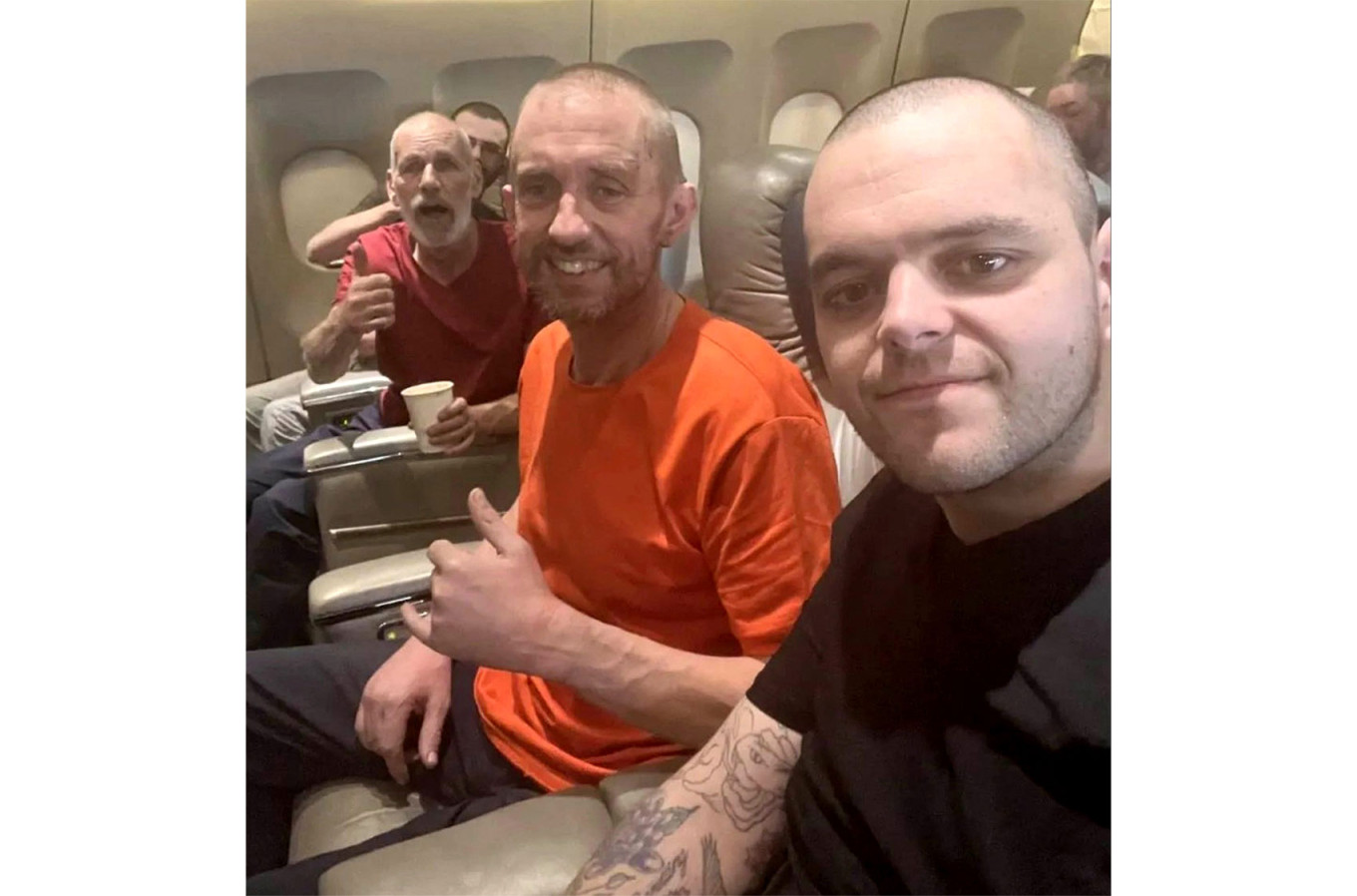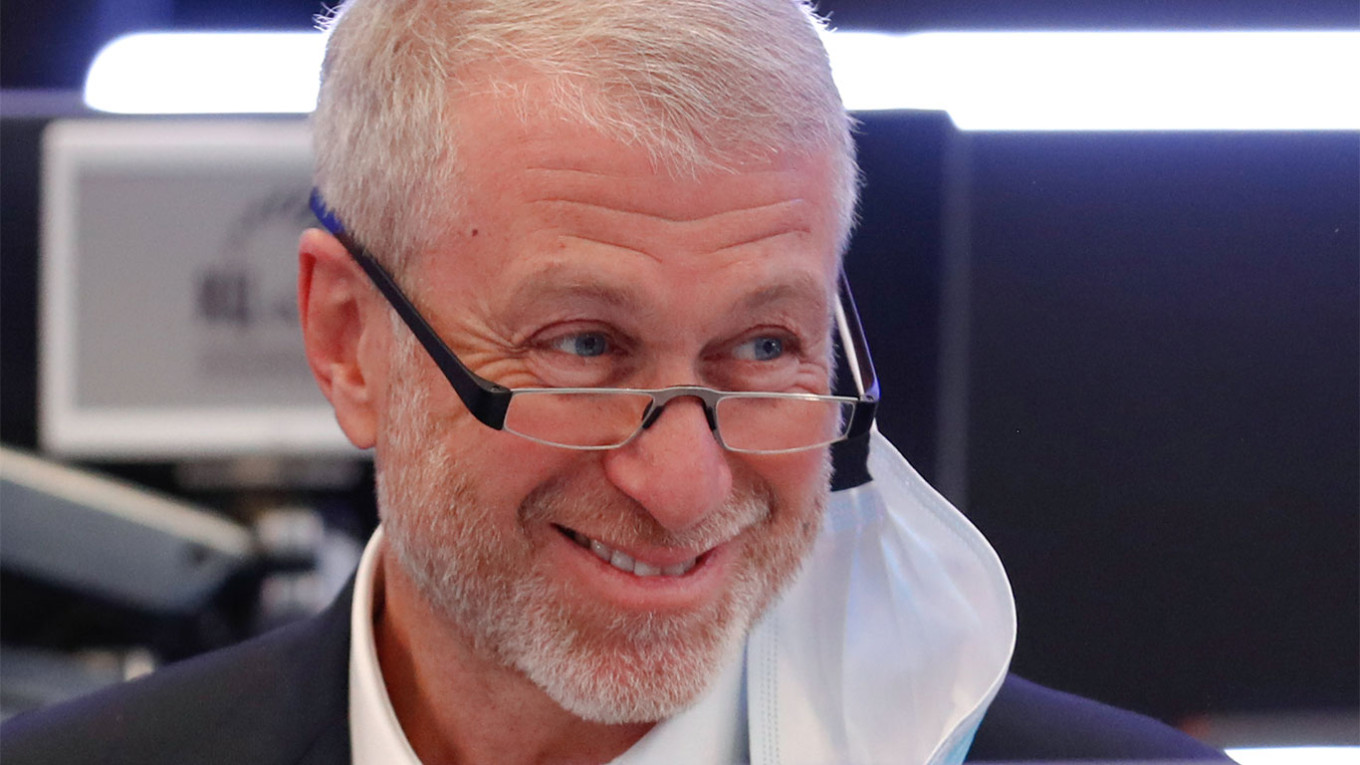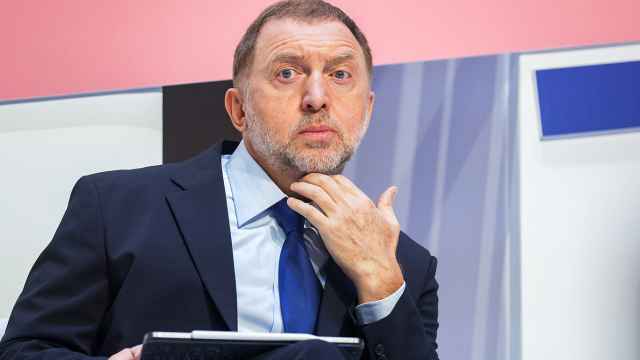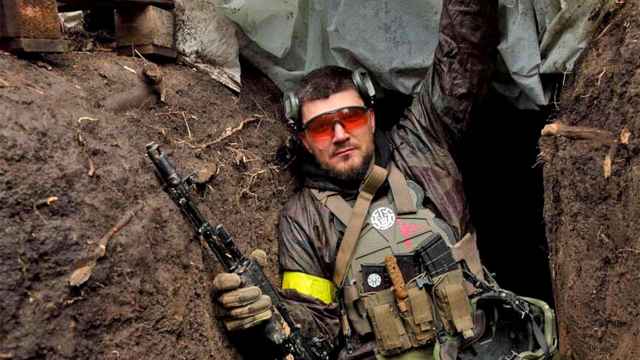Sanctioned former Chelsea Football Club owner Roman Abramovich played a "key part" in the release of five men held by Russian-backed separatists in Ukraine, a report said on Friday.
One of the five men freed in a prisoner swap earlier this week, John Harding, said the Russian oligarch identified himself to fellow detainee Shaun Pinner after they boarded their flight to Riyadh.
Harding, meanwhile, said he spoke to Abramovich's assistant who said the Russian had played a "key part" in their release, The Sun daily reported.

The freed prisoners were flown to the Saudi capital Riyadh on Wednesday after Crown Prince Mohammed bin Salman took part in negotiations.
Abramovich, 55, was sanctioned by the U.K. government on March 10, with Downing Street claiming he had proven his links to Russian President Vladimir Putin. He is also subject to EU sanctions.
"Shaun was chatting away to him (Abramovich) about football for a long time and I was speaking to his assistant," Harding told The Sun.
"She said Roman had played a key part in getting us back," Harding told the daily.
"He's well respected by Ukrainians and massively by us now, too — he's done a hell of a lot for us and we couldn't thank him enough," he added.
The five British men — Harding, Pinner, Aiden Aslin, Dylan Healy and Andrew Hill — were released as part of a record-high prisoner swap that also freed U.S., Moroccan, Swedish and Croatian nationals as well Ukrainian and separatist fighters and a major pro-Moscow politician.
The British prisoners had been held by Russian proxies in the separatist hub of Donetsk after joining the war as volunteer fighters and aid workers.
Aslin and Pinner were sentenced to death in June, while the other three men went on trial in August on the same charge of serving as mercenaries.
One British man, Paul Urey, died in captivity following his detention in April shortly after the war began.
Last month jailed Kremlin critic Alexei Navalny called for more systematic punitive measures against Russian oligarchs supporting Putin and the war in Ukraine.
He said Abramovich had so far escaped U.S. sanctions despite his companies "supplying metal to the Russian Defense Ministry."
A Message from The Moscow Times:
Dear readers,
We are facing unprecedented challenges. Russia's Prosecutor General's Office has designated The Moscow Times as an "undesirable" organization, criminalizing our work and putting our staff at risk of prosecution. This follows our earlier unjust labeling as a "foreign agent."
These actions are direct attempts to silence independent journalism in Russia. The authorities claim our work "discredits the decisions of the Russian leadership." We see things differently: we strive to provide accurate, unbiased reporting on Russia.
We, the journalists of The Moscow Times, refuse to be silenced. But to continue our work, we need your help.
Your support, no matter how small, makes a world of difference. If you can, please support us monthly starting from just $2. It's quick to set up, and every contribution makes a significant impact.
By supporting The Moscow Times, you're defending open, independent journalism in the face of repression. Thank you for standing with us.
Remind me later.






